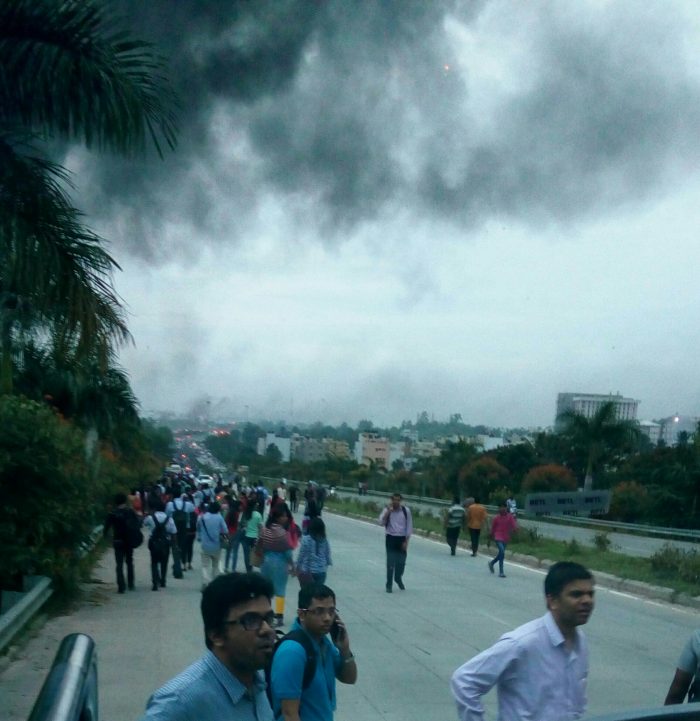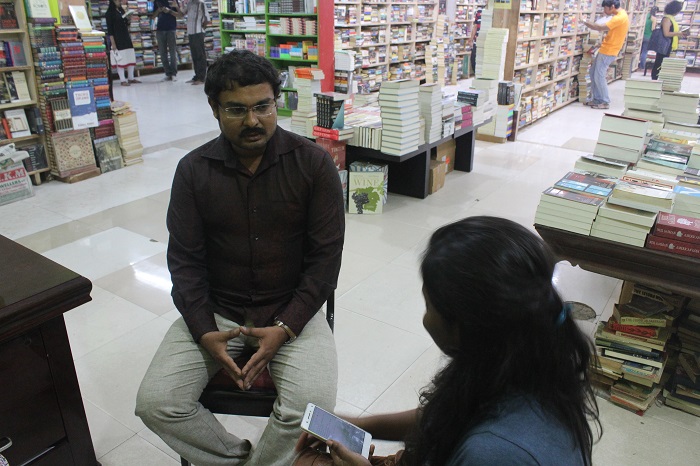The first time I heard the name Agni Sreedhar I was sitting in one of the conference rooms of the Hotel Lalit Ashok, Bengaluru, editing a blog for the Bangalore Literature Festival. Mr. Sreedhar was one of the guest speakers for the festival and was in conversation with renowned Kannada writer Prathibha Nandakumar about his new book The Gangster’s Gita (published by Eka). Like many others before me, I too was intrigued reading about his life and one of our team members filled me in with more details about this so-called gangster turned writer, which only piqued me further. His story has been so unlike the usual that it wasn’t too difficult for me to register his name in the memory amidst the long list of speakers who came to the festival. From then till today, there had been many occasions when I had serendipitously crossed paths with Gangster’s Gita. As lame as it may sound, I have always believed that a good book will always find you when the time is just right.
Last night I was window shopping on Kindle and once again found The Gangster’s Gita sitting there asking to be read. I instinctively downloaded it but it was almost midnight. I told myself I will have a look at the ‘Translator’s Note’ and read the rest of the book the next morning. The translation is done by Prathibha Nandakumar and the original title in Kannada is Edegarike. In her note, she talks about the author and his love of literature. She also talks about how translating his book hasn’t been an easier task given Sreedhar’s distinct style of writing along with the need to retain the nuances of the original narration in Kannada. However, all the hard work and the multiple drafts of translation seems to have paid off, because I couldn’t just stop with the translator’s note. Before I knew it, I was already reading the last lines of the book and I must credit the translator as much as the author for the scintillating read. Personally for me, one of the best things that happened to the book is Prathibha’s translation along with her note.
The publisher’s note claims that this is a work of fiction and the usual that follows. However, the book begins with words of Erik Erikson – ‘A novel is not necessarily a work of fiction’. The narrator is our very Sreedhar Anna who entered the criminal world under the strangest of circumstances. However, the real protagonist of this stirring story seems to be Sona. Sona belonged with the mafia of the Mumbai underworld and was sent to Bangalore on an assignment that involved Sreedhar Anna and his boss. The sudden turn of events leads to Sreedhar Anna meeting Sona. The duo is then compelled by circumstances to leave Bangalore to Sakleshpur along with Sreedhar Anna’s boss and some of their boys. During their adventurous trip and their stay in Sakleshpur, Sreedhar Anna and Sona get acquainted with each other.
The book follows the life of Sona through conversations with Sreedhar Anna. Sona, who is barely thirty years old, intrigues Sreedhar Anna with his calm and poise. Their conversations and Sona’s demeanour unleash a storm within Sreedhar Anna and stirs up the readers too without fail. In her note earlier, Prathibha talked about how they arrived at the title of the book and it can’t be any more apt than this. The book stands on the shoulders of two men who have killed and questions the concepts of strength and weakness, heroism and cowardice. It wretches open the seemingly cold-hearts of these men and drench you in the blood of warmth that flows inside them. The choices that they made, the choices that are made for them, their regrets, their gracefulness demolishes all pre-established ideas of good- bad and right-wrong.
Orwell says “Good prose should be transparent, like a windowpane.”, and that is exactly how our author writes. He forgoes the decorative language and sticks with straight yet evocative narration. It is a thin book with only 103 pages yet with its powerful, thought-provoking narration it invoked a whirlwind of emotions within me that I could barely fall asleep. It has been one of the very fulfilling reads for this year and I am grateful for all the happenstances that led me to the discovery of this book.
















